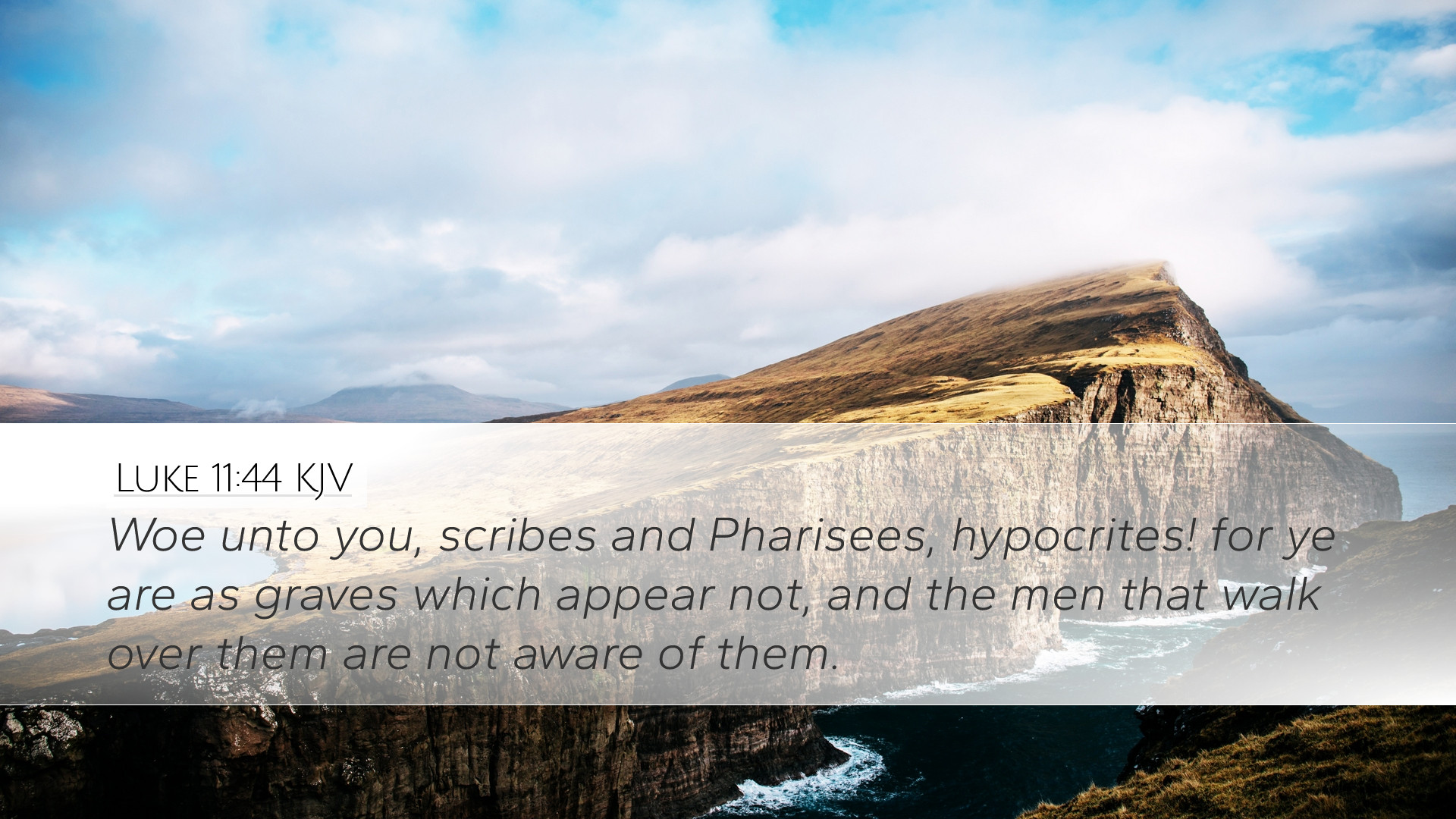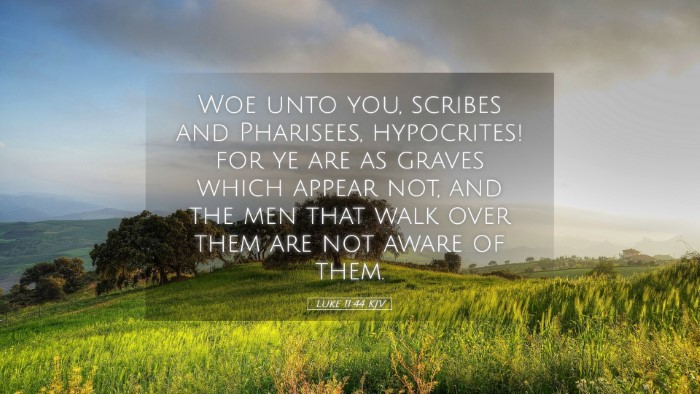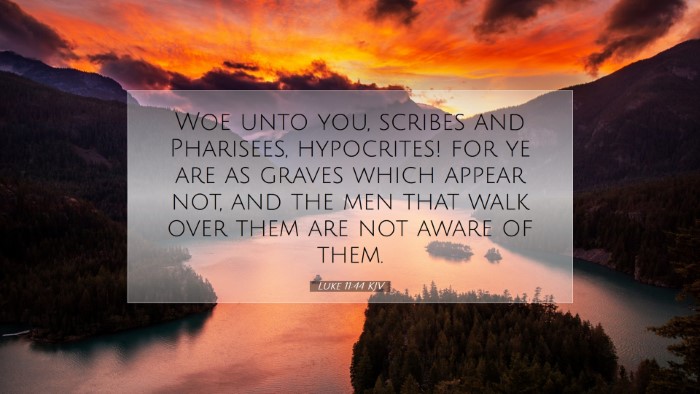Bible Commentary on Luke 11:44
Verse: Luke 11:44
"Woe unto you! For ye are as the graves which appear not, and the men that walk over them are not aware of them."
Context and Meaning
This verse appears within a series of woes pronounced by Jesus against the Pharisees and the experts in the law. The context reveals the intense criticism Jesus had towards those who were outwardly pious yet inwardly corrupt. This particular verse addresses the notion of hidden graves, which could corrupt the purity of those who unwittingly walked over them.
Insights from Commentators
Matthew Henry
Henry notes that Jesus emphasizes the danger of appearances versus reality. The Pharisees were likened to unseen graves—objects that could defile and corrupt, yet were not visible. This metaphor underscores the spiritual negligence of the Pharisees. While they seemed to lead others to God, their actions and hearts were far removed from true righteousness.
Albert Barnes
Barnes elaborates on the implications of being compared to graves. Graves represent death, and walking over them typically would render a person unclean under Jewish law. Thus, Jesus uses this analogy to signify that the Pharisees, despite their outward observance of the law, were actually leading others into spiritual death. Their hypocrisy made them a danger to those they influenced.
Adam Clarke
Clarke provides additional context by explaining that graves were often unmarked in the land of the Israelites, leading to accidental defilement. He draws a parallel to how the teachings and traditions of the Pharisees, if followed blindly, could lead believers into spiritual death without their knowledge. His commentary suggests that true spirituality requires awareness and discernment, rather than blind adherence to outward practices.
Theological Implications
This verse serves as a stark warning regarding the spiritual condition of leaders and teachers in the church. The juxtaposition of outward appearances and inward realities calls for deeper reflection on personal integrity and authenticity. It challenges Christian leaders to ensure that their lives reflect the gospel, rather than merely adhering to a set of external standards.
- Hypocrisy: The call to recognize the dangers of leading a double life or promoting spiritual standards that one does not practice personally.
- Spiritual Awareness: The need for vigilance both in personal faith and in the teachings one accepts and promotes.
- Servant Leadership: A reminder that spiritual leaders are tasked with guiding the faithful toward true purity and righteousness, rather than adhering to man-made traditions.
Application
For pastors, theologians, and students, this passage invites a rigorous self-examination of one’s motives and teachings. The allegory of a hidden grave is a sobering reminder that what is not seen can still harm others. It urges leaders to practice genuine faith and transparency, revealing that true authority comes from authenticity rather than mere outward conformity.
Moreover, this reflection extends to congregants as well, in that each believer is called to discern and verify the teachings they follow, ensuring they align with Scripture. In an age where the church can often be influenced by cultural norms and external pressures, Professors and theologians are urged to cultivate a robust theological foundation, prioritizing the unchanging truths of God’s Word.
Conclusion
Luke 11:44 is a profound statement on the nature of spiritual authority and the critical need for authenticity. The insights from public domain commentaries highlight the essential understanding that true faith transcends appearance. Leaders in the church are called to reflect on this sobering warning and engage in a deeper understanding of their spiritual responsibilities, ensuring that their lives and teachings lead others toward the life-giving truths of the gospel.


